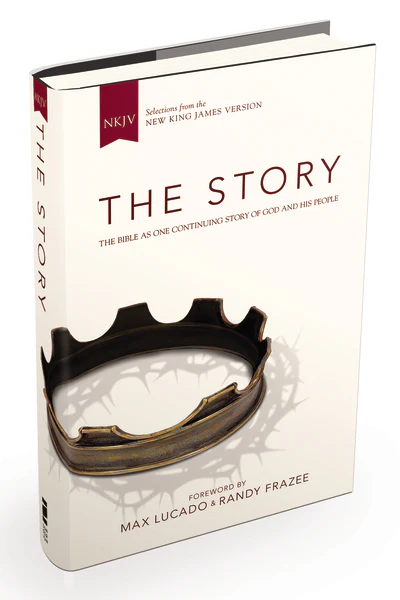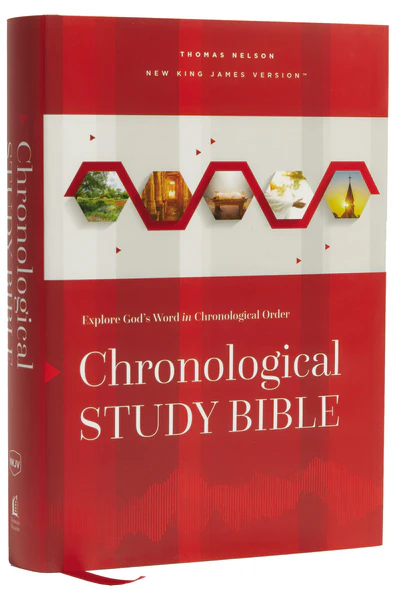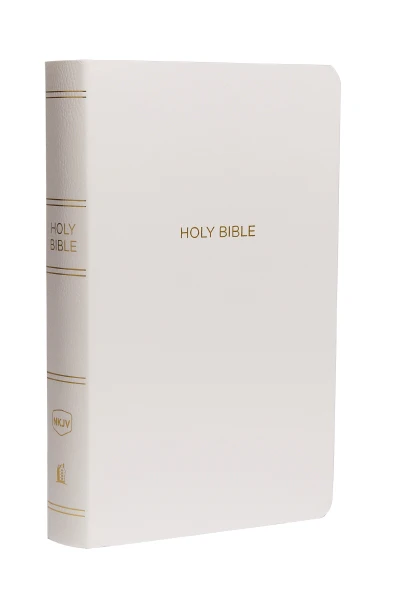Esther 5-6
New King James Version
Esther’s Banquet
5 Now it happened (A)on the third day that Esther put on her royal robes and stood in (B)the inner court of the king’s palace, across from the king’s house, while the king sat on his royal throne in the royal house, facing the entrance of the [a]house. 2 So it was, when the king saw Queen Esther standing in the court, that (C)she found favor in his sight, and (D)the king held out to Esther the golden scepter that was in his hand. Then Esther went near and touched the top of the scepter.
3 And the king said to her, “What do you wish, Queen Esther? What is your request? (E)It shall be given to you—up to half the kingdom!”
4 So Esther answered, “If it pleases the king, let the king and Haman come today to the banquet that I have prepared for him.”
5 Then the king said, “Bring Haman quickly, that he may do as Esther has said.” So the king and Haman went to the banquet that Esther had prepared.
6 At the banquet of wine (F)the king said to Esther, (G)“What is your petition? It shall be granted you. What is your request, up to half the kingdom? It shall be done!”
7 Then Esther answered and said, “My petition and request is this: 8 If I have found favor in the sight of the king, and if it pleases the king to grant my petition and [b]fulfill my request, then let the king and Haman come to the (H)banquet which I will prepare for them, and tomorrow I will do as the king has said.”
Haman’s Plot Against Mordecai
9 So Haman went out that day (I)joyful and with a glad heart; but when Haman saw Mordecai in the king’s gate, and (J)that he did not stand or tremble before him, he was filled with indignation against Mordecai. 10 Nevertheless Haman (K)restrained himself and went home, and he sent and called for his friends and his wife Zeresh. 11 Then Haman told them of his great riches, (L)the multitude of his children, everything in which the king had promoted him, and how he had (M)advanced him above the officials and servants of the king.
12 Moreover Haman said, “Besides, Queen Esther invited no one but me to come in with the king to the banquet that she prepared; and tomorrow I am again invited by her, along with the king. 13 Yet all this avails me nothing, so long as I see Mordecai the Jew sitting at the king’s gate.”
14 Then his wife Zeresh and all his friends said to him, “Let a (N)gallows[c] be made, [d]fifty cubits high, and in the morning (O)suggest to the king that Mordecai be hanged on it; then go merrily with the king to the banquet.”
And the thing pleased Haman; so he had (P)the gallows made.
The King Honors Mordecai
6 That night [e]the king could not sleep. So one was commanded to bring (Q)the book of the records of the chronicles; and they were read before the king. 2 And it was found written that Mordecai had told of [f]Bigthana and Teresh, two of the king’s eunuchs, the doorkeepers who had sought to lay hands on King Ahasuerus. 3 Then the king said, “What honor or dignity has been bestowed on Mordecai for this?”
And the king’s servants who attended him said, “Nothing has been done for him.”
4 So the king said, “Who is in the court?” Now Haman had just entered (R)the outer court of the king’s palace (S)to suggest that the king hang Mordecai on the gallows that he had prepared for him.
5 The king’s servants said to him, “Haman is there, standing in the court.”
And the king said, “Let him come in.”
6 So Haman came in, and the king asked him, “What shall be done for the man whom the king delights to honor?”
Now Haman thought in his heart, “Whom would the king delight to honor more than (T)me?” 7 And Haman answered the king, “For the man whom the king delights to honor, 8 let a royal robe be brought which the king has worn, and (U)a horse on which the king has ridden, which has a royal [g]crest placed on its head. 9 Then let this robe and horse be delivered to the hand of one of the king’s most noble princes, that he may array the man whom the king delights to honor. Then [h]parade him on horseback through the city square, (V)and proclaim before him: ‘Thus shall it be done to the man whom the king delights to honor!’ ”
10 Then the king said to Haman, “Hurry, take the robe and the horse, as you have suggested, and do so for Mordecai the Jew who sits within the king’s gate! Leave nothing undone of all that you have spoken.”
11 So Haman took the robe and the horse, arrayed Mordecai and led him on horseback through the city square, and proclaimed before him, “Thus shall it be done to the man whom the king delights to honor!”
12 Afterward Mordecai went back to the king’s gate. But Haman (W)hurried to his house, mourning (X)and with his head covered. 13 When Haman told his wife Zeresh and all his friends everything that had happened to him, his wise men and his wife Zeresh said to him, “If Mordecai, before whom you have begun to fall, is of Jewish descent, you will not prevail against (Y)him but will surely fall before him.”
14 While they were still talking with him, the king’s eunuchs came, and hastened to bring Haman to (Z)the banquet which Esther had prepared.
Footnotes
- Esther 5:1 LXX adds many extra details in vv. 1, 2
- Esther 5:8 Lit. to do
- Esther 5:14 Lit. tree or wood
- Esther 5:14 About 75 feet
- Esther 6:1 Lit. the king’s sleep fled away
- Esther 6:2 Bigthan, Esth. 2:21
- Esther 6:8 crown
- Esther 6:9 Lit. cause him to ride
Psalm 90:1-6
New King James Version
BOOK FOUR
Psalms 90–106
The Eternity of God, and Man’s Frailty
A Prayer (A)of Moses the man of God.
90 Lord, (B)You have been our [a]dwelling place in all generations.
2 (C)Before the mountains were brought forth,
Or ever You [b]had formed the earth and the world,
Even from everlasting to everlasting, You are God.
3 You turn man to destruction,
And say, (D)“Return, O children of men.”
4 (E)For a thousand years in Your sight
Are like yesterday when it is past,
And like a watch in the night.
5 You carry them away like a flood;
(F)They are like a sleep.
In the morning (G)they are like grass which grows up:
6 In the morning it flourishes and grows up;
In the evening it is cut down and withers.
Footnotes
- Psalm 90:1 LXX, Tg., Vg. refuge
- Psalm 90:2 Lit. gave birth to
Proverbs 22:9
New King James Version
Footnotes
- Proverbs 22:9 Lit. good
Romans 4
New King James Version
Abraham Justified by Faith(A)
4 What then shall we say that (B)Abraham our (C)father[a] has found according to the flesh? 2 For if Abraham was (D)justified by works, he has something to boast about, but not before God. 3 For what does the Scripture say? (E)“Abraham believed God, and it was [b]accounted to him for righteousness.” 4 Now (F)to him who works, the wages are not counted [c]as grace but as debt.
David Celebrates the Same Truth
5 But to him who (G)does not work but believes on Him who justifies (H)the ungodly, his faith is accounted for righteousness, 6 just as David also (I)describes the blessedness of the man to whom God imputes righteousness apart from works:
7 “Blessed(J) are those whose lawless deeds are forgiven,
And whose sins are covered;
8 Blessed is the man to whom the Lord shall not impute sin.”
Abraham Justified Before Circumcision
9 Does this blessedness then come upon the circumcised only, or upon the uncircumcised also? For we say that faith was accounted to Abraham for righteousness. 10 How then was it accounted? While he was circumcised, or uncircumcised? Not while circumcised, but while uncircumcised. 11 And (K)he received the sign of circumcision, a seal of the righteousness of the faith which he had while still uncircumcised, that (L)he might be the father of all those who believe, though they are uncircumcised, that righteousness might be imputed to them also, 12 and the father of circumcision to those who not only are of the circumcision, but who also walk in the steps of the faith which our father (M)Abraham had while still uncircumcised.
The Promise Granted Through Faith
13 For the promise that he would be the (N)heir of the world was not to Abraham or to his seed through the law, but through the righteousness of faith. 14 For (O)if those who are of the law are heirs, faith is made void and the promise made of no effect, 15 because (P)the law brings about wrath; for where there is no law there is no transgression.
16 Therefore it is of faith that it might be (Q)according to grace, (R)so that the promise might be [d]sure to all the seed, not only to those who are of the law, but also to those who are of the faith of Abraham, (S)who is the father of us all 17 (as it is written, (T)“I have made you a father of many nations”) in the presence of Him whom he believed—God, (U)who gives life to the dead and calls those (V)things which do not exist as though they did; 18 who, contrary to hope, in hope believed, so that he became the father of many nations, according to what was spoken, (W)“So shall your descendants be.” 19 And not being weak in faith, (X)he did not consider his own body, already dead (since he was about a hundred years old), (Y)and the deadness of Sarah’s womb. 20 He did not waver at the promise of God through unbelief, but was strengthened in faith, giving glory to God, 21 and being fully convinced that what He had promised (Z)He was also able to perform. 22 And therefore (AA)“it was accounted to him for righteousness.”
23 Now (AB)it was not written for his sake alone that it was imputed to him, 24 but also for us. It shall be imputed to us who believe (AC)in Him who raised up Jesus our Lord from the dead, 25 (AD)who was delivered up because of our offenses, and (AE)was raised because of our justification.
Footnotes
- Romans 4:1 Or (fore)father according to the flesh has found?
- Romans 4:3 imputed, credited, reckoned, counted
- Romans 4:4 according to
- Romans 4:16 certain
Scripture taken from the New King James Version®. Copyright © 1982 by Thomas Nelson. Used by permission. All rights reserved.
Bible Gateway Recommends






